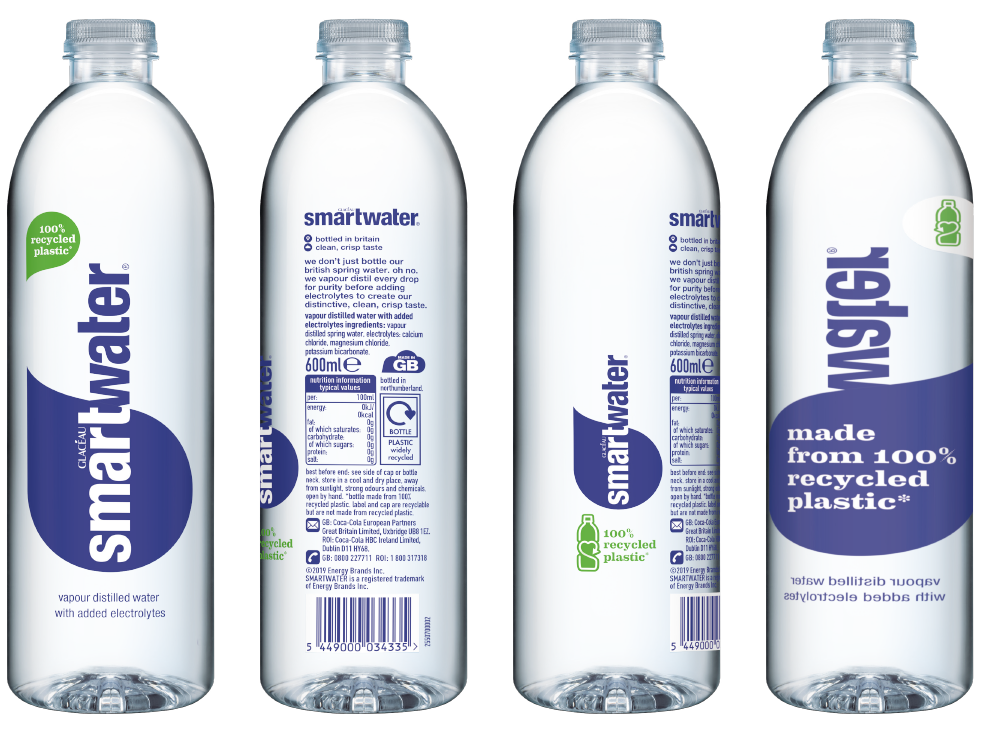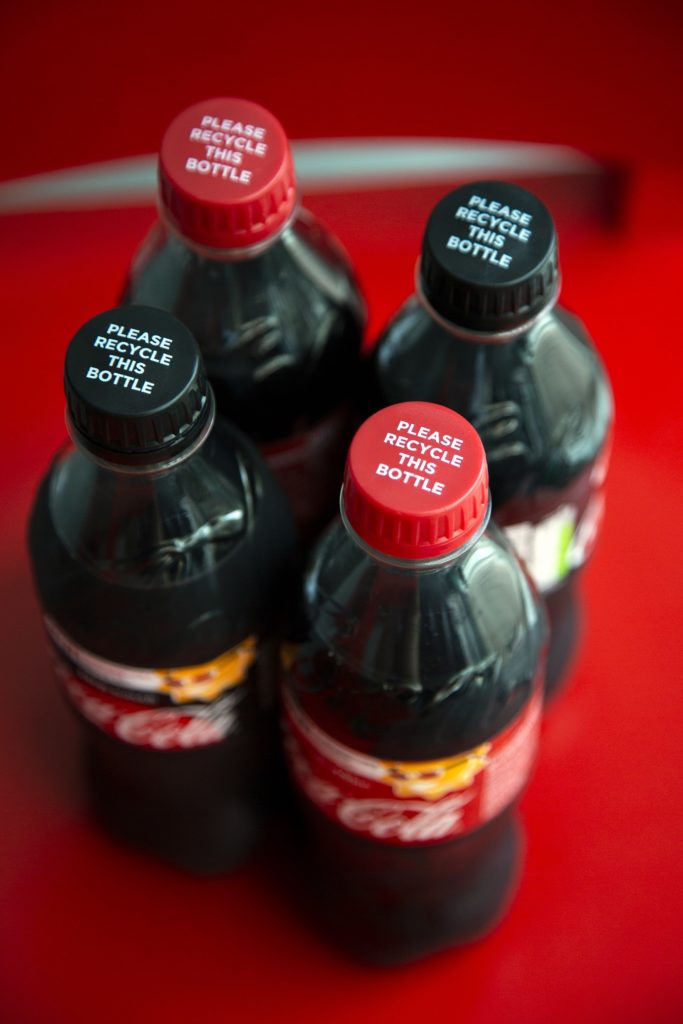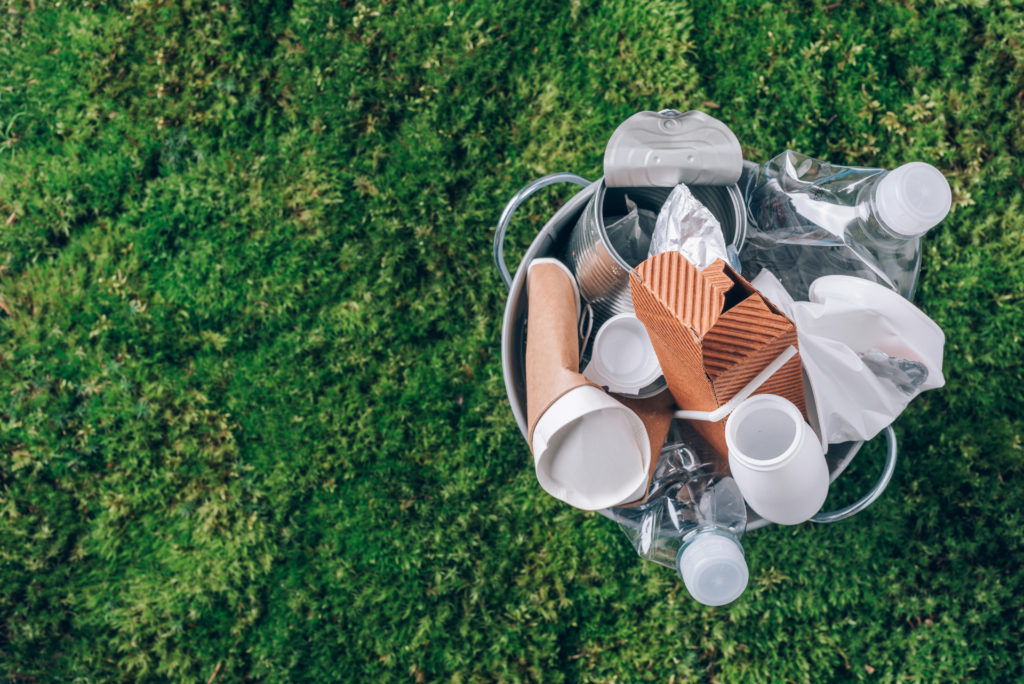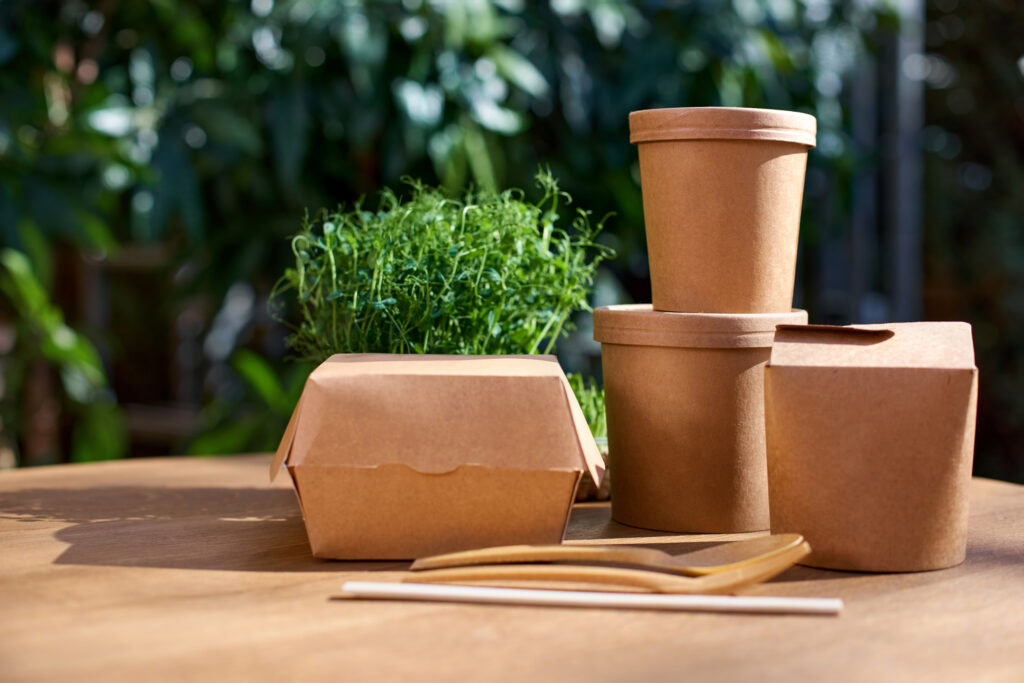The announcement comes as the company’s recycling credentials face an element of scrutiny after a complaint to the Advertising Standards Agency (ASA) by plastic campaigners City to Sea. James Langley takes a closer look at the case.
The Advertising Standards Agency is assessing whether to carry out a formal investigation into Coca-Cola’s statement that its Smartwater bottles are made from 100% recycled plastic. The ASA described the possible investigation as being into whether the 100% figure is “an exaggeration of the product’s environmental credentials”.

Pertaining only to the plastic used in GLACÉAU Smartwater bottles, the considerations were triggered by an initial complaint from plastic campaigners City to Sea in December, regarding use of the phrase “single-use” in a Coca-Cola advert more generally. This complaint was dismissed (see below).
However, the ASA council, an independent jury responsible for deciding whether advertisements have broken advertising rules, is considering whether to investigate the use of the phrase “100% recycled” in the same advert.
An ASA spokesperson told letsrecycle.com: “Council has asked the complaints team to look further at whether the environmental credentials of the product have been exaggerated through the claim ‘100% recycled’.
“That is currently being assessed with a view to establishing if we’ll take it through to a formal investigation.”
Advert
City to Sea’s initial complaint referred to Coca-Cola’s ‘Round in Circles’ campaign, which asserts that the drinks manufacturers’ bottles are 100% recyclable and can be turned into new bottles.

The advert reads: “Single-use plastic bottles are only single-use if they are thrown away.
“The plastic in our bottles can be recycled many times and Smartwater will be our first brand to come in bottles made from 100% recycled plastic.”
City to Sea objected to the use of the term “single-use”, saying it misrepresented a commonly held definition of the word. This complaint was not upheld by the ASA.
Commenting on the ASA decision not to uphold the objection, Steve Hynd, City to Sea’s campaigns manager, was undeterred by the decision on his original complaint. He chose instead to focus on the potential investigation into Coca-Cola’s claims over Smartwater.
Although a formal investigation into the 100% recycled claim for GLACÉAU water has not been announced, Mr Hynd said: “We welcome the news from the ASA that they are investigating the environmental claims made by Coca-Cola.”
“We look forward to hearing the ASA’s conclusions on whether the environmental credentials of the product have been exaggerated”
He added: “Their bottles are littering our environment and filling up our landfills, and we know that even Coke admit that just a fraction of their bottles are actually recycled.
“We look forward to hearing the ASA’s conclusions on whether the environmental credentials of the product have been exaggerated and we will actively contribute to their investigation.”
Smartwater
In June 2019 Coca-Cola announced that its GLACÉAU Smartwater bottles were to be made from 100% recycled plastic (rPET) by the end of the year (see letsrecycle.com story). A spokesperson for Coca-Cola Great Britain told letsrecycle.com that this had now happened.

The drinks manufacturers said the changes would remove 3,100 tonnes of virgin plastic from circulation per year.
At the time Jon Woods, general manager of Coca-Cola Great Britain, said: “Using more recycled plastic is a critical element of our sustainable packaging strategy, as it reduces the amount of virgin material used in our packs.”
Praise
The move to 100% recycled plastic for the water product was praised in June 2019 by environment minister Thérèse Coffey, who said: “Congratulations to Coca-Cola on making this significant step to help our natural environment.
“These initiatives, including using more recycled plastic in their bottles, set a fine example to other large businesses and we hope that others follow suit.”
This praise was echoed by waste charity WRAP, who also said it appreciated the drinks manufacturers’ decision to change the colour of its green Sprite lemonade bottle to clear.
Marcus Gover, chief executive of WRAP, said at the time: “Coca-Cola was one of the founding members of The UK Plastics Pact and it’s great to see them announce developments which demonstrate progress towards the Pact’s targets.
“A bottle made from recycled plastic uses 75% less energy and changing colour from green to clear may be subtle to the public but enables that plastic to be used for a multitude of purposes and significantly increases its value.”
Complaint dismissed
City to Sea made its complaint about the advertisement in December, claiming that Coca-Cola’s use of “single-use” misrepresented a commonly held definition of the word.
The ASA did not agree, and said that Coca-Cola’s use of the word ‘single-use’ had not breached the Advertising Code by misleading the public.
The ASA spokesperson said: “Our council carefully assessed this complaint. It considered that the term ‘single-use’ would be interpreted as relating to bottles that would normally become landfill, rather than recycled and made into new products.
“It considered that the ad did not state or otherwise imply that the plastic from the recycled bottles would be necessarily used to make new bottles.
“On those grounds, council did not think the ad breached the Advertising Code.”
And Coca-Cola defended its use of the phrase.
“For the plastic in our bottles to have more than one use the essential first step is for the bottle to be put in a recycling bin”
A Coca-Cola spokesperson said: “It’s important that more of us recycle plastic drinks bottles and the campaign we ran recently was designed to make clear to people that all of our bottles can and should be recycled so that the plastic in them can be used to make a new bottle.
“The PET plastic in our bottles is a high-grade plastic which is straightforward to recycle and use again. But for the plastic in our bottles to have more than one use the essential first step is for the bottle to be put in a recycling bin.
“That’s what the advert was encouraging consumers to do – and so prevent the bottle being single-use.”










Subscribe for free